Africa/ Liberia/ 04.02.2019/ Source: www.voanews.com.
Sam and Tricia Gabriel got off work on a dark January evening in Iowa. The temperature outside was -13 degrees Celsius (8 degrees Fahrenheit).
Instead of settling into their cozy suburban townhome with their children, ages 9 and 2, the Gabriels quickly returned to the roads, slick with ice. Tricia drove her car in one direction while Sam drove a 15-passenger van in another, and for the next 1½ hours they picked up 30 children of mostly African refugees from across the Des Moines, Iowa, metropolitan area.
The children, ages 4 to 14, were taken to a local elementary school, where they practiced schoolwork, soccer and dance. Two hours later, Sam and Tricia drove them all back home, returning to their townhome after 10 p.m.
They said they do this every weeknight to help the children adjust to America. They don’t consider it heroic. Not compared to what they endured.
“I see myself in them,” said Sam, 36.
Childhood in Liberia
As a young boy, he walked all night through the Liberia countryside with his parents, afraid that rebels would kill them. One man was plucked from the crowd and shot before his eyes.
“It was the first time I saw a dead person,” he said. “If they took my father, I would have to pretend not to know him and keep walking.”
Meanwhile, Tricia and her family were of a tribe targeted by rebels and fled to a government military base.
Sam and Tricia’s lives unknowingly ran a parallel course.
Both had lived in Monrovia, Liberia, as young children while civil war raged. Both ended up in a refugee camp in Ivory Coast before coming to Des Moines. Both attended high schools there, until one day they met by accident in the most American of venues — Walmart.
Tricia said she could tell he was a Liberian, even in the crowded aisles of a huge superstore. They talked, fell in love and married in 2011. They had two children while finishing their education at Mercy College of Health Sciences in Des Moines.
But they say they didn’t escape death to settle for the comfort of the American dream. In 2014, the couple launched the Genesis Youth Foundation, a nonprofit that mentors refugee children, who often don’t have the money to participate in youth programs.
The Gabriels use donations or their own money for gas to travel, snacks or soccer uniforms for the children. It’s a tiring mission the couple performs every day, after Sam finishes his work as an Uber driver and Tricia as a nurse at a local retirement community.
But it fills a vital need, said Nicholas Wuertz, director of refugee services at Lutheran Services in Iowa, because “most of the federally funded resources for resettled refugees are for employable adults.”
Refugees in Iowa
Iowa, a mostly rural Midwestern state, is more than 1,600 kilometers from either of the heavily populated U.S. coasts. With a population of more than 3 million people, it ranks 30th among the 50 U.S. states. The state’s economy is rooted in agriculture and manufacturing, but also has diversified to include the insurance and financial industries.
In 2017, there were 18,782 Iowans who had been born in Africa, six times the number from 2000, according to the Migration Policy Institute. In fiscal 2018, 99 of the 110 refugee arrivals to Iowa were from African countries, according to the U.S. Department of State.
They live amid a recent U.S. political climate of suspicion toward immigrants or refugees and confusion over acclimating to America.
Just as the Gabriels said they once did, the children try to adjust to a new country while their parents work long hours.
Sam’s mom worked as hotel housekeeper, his father as a janitor. Sam said he tried to fit in, joining the soccer team in school. But his parents didn’t have the money for travel or uniforms, or even transportation to practices.
Tricia wore clothes that suited her well in Liberia, but not so much in America. She said she was bullied and mocked in school.
Sam said refugee children feel torn, trying to conform to more American ways at school to avoid being bullied, yet facing pressure at home to carry on their traditions. They are often left feeling they don’t belong anywhere, he adds.
Sam wanted to help. At one point in his childhood in Ivory Coast, he said he ran away from his parents and was wandering homeless when a man he encountered helped him by giving him a place to stay and offering encouragement.
“Because of that man, every time I see young boys going through struggles, I know they need someone like me to help them through the struggle,” he said.
He started in 2009 with what he knew: soccer. At first, he brought together boys, many of whom couldn’t afford to join soccer clubs, for practice. He saw children from several African nations blend over their love of the game. He said he held them accountable for their behavior and for schoolwork, and he saw attitudes change.
Inspired by Sam’s passion, Tricia, 29, got involved, becoming the arts director of programming and adding a choir and dance group. Their small grassroots effort grew into a nonprofit in 2014, and in the past few years they have received a grant as well as a van to pick up the kids.
‘Hope’ the children give back
“My hope is that the children become better individuals in the community and give back after seeing what we do for them,” Tricia said.
On this frigid night, the school buzzed with activity. Some children played soccer, others danced. Another group huddled over school lessons, helped by a handful of volunteers. The children were born in several different African countries: Liberia, Uganda, Congo, Tanzania, Burundi, Eritrea and Somalia.
Abu Bakar, who joined the group while he was in high school, said it helped him stay out of trouble and build his communication skills after his parents moved to Iowa from Sierra Leone in 2005. Now in his mid-20s, he brings two sons, ages 4 and 5, to play soccer, too.
Other parents say the tutoring helps their children learn subjects they cannot teach them.
Korto Klar, 14, whose parents moved to Iowa from Liberia in 2005, said it helps her to be around other people who make her feel like she belongs.
The dance she is practicing on this frigid night is one she said she will perform in March, during a fundraiser, where refugee parents using their limited incomes and food stamps plan to cook a meal to share with the capital city’s larger community.
Sam said he wants the children to learn from the event: “You can’t be a leader until you are a servant.”
Source of the notice: https://www.voanews.com/a/iowa-liberia-couple-reaches-out-to-fellow-african-refugees/4769739.html
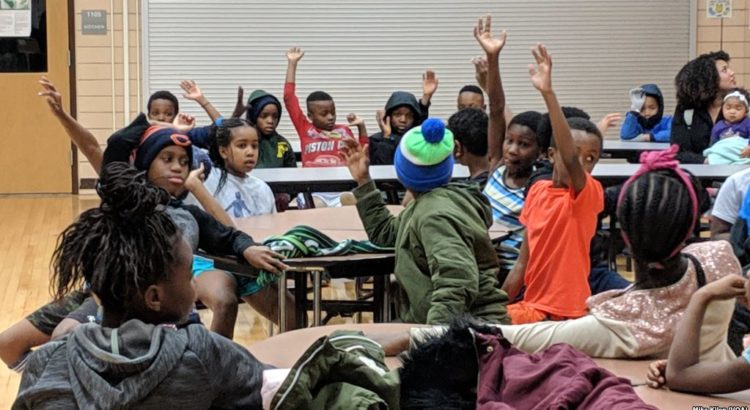
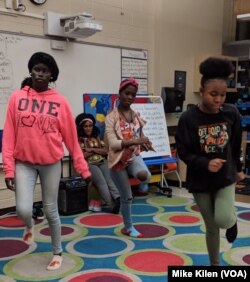
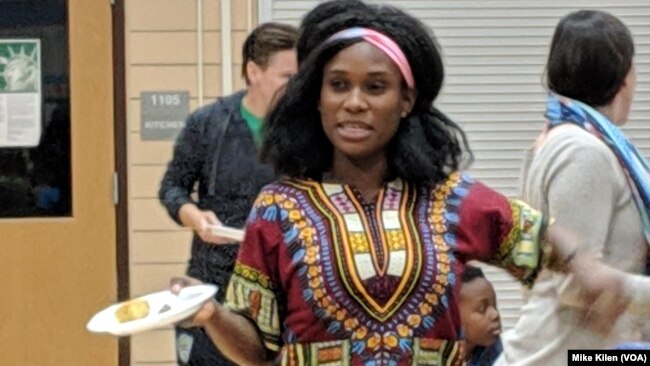
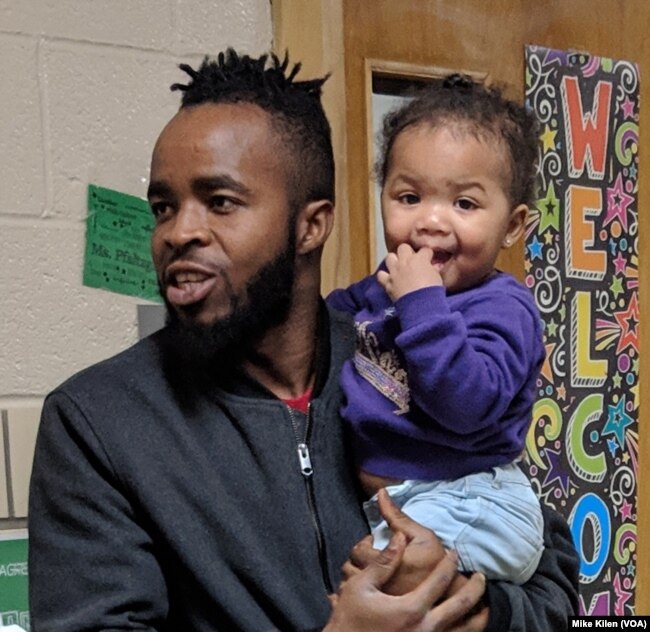
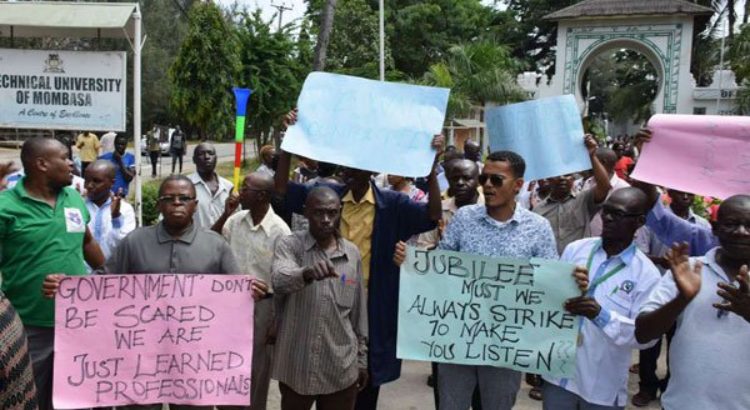
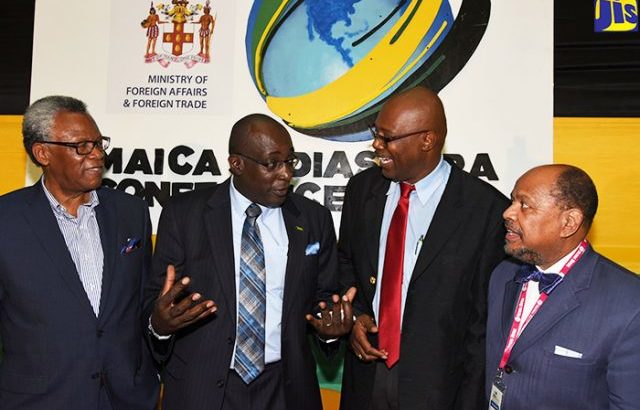






 Users Today : 34
Users Today : 34 Total Users : 35460243
Total Users : 35460243 Views Today : 42
Views Today : 42 Total views : 3418937
Total views : 3418937